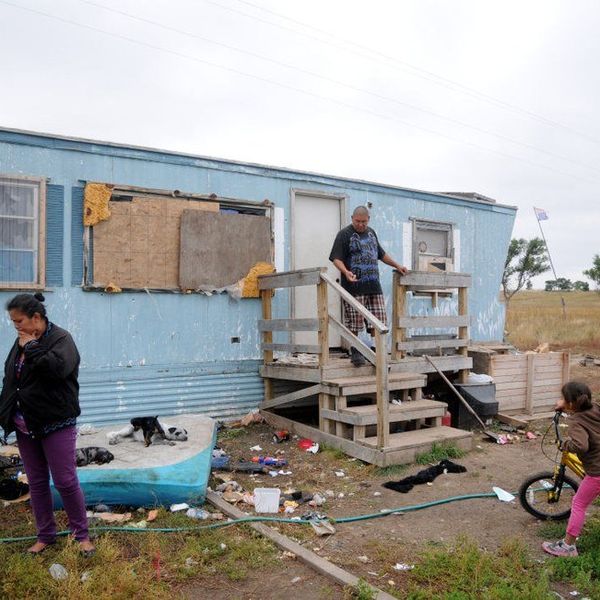Colonization, the process of establishing control over the indigenous people of an area or appropriating a place or domain for one’s own use, is a flagrant American theme. This may come as a surprise to the multitude of people that, despite the indigenous communities’ assertions on the contrary, have become indoctrinated with the belief that colonization is a term reserved exclusively for history books. However, this past week it has been made blatantly obvious that colonization is still occurring in 2017.
Last Wednesday, February 22, North Dakota Governor Doug Burgum and the Army Corps of Engineers issued an eviction notice to the Standing Rock protesters at the Oceti Sakowin camp. While the North Dakota government alleged that the notice to close the camp was in response to a fear of flooding, activist and Standing Rock Sioux Tribe member, Chase Iron Eyes, assures this was not the case, “Right now there is a forced removal happening, an ethnic cleansing,” he hold a CBS reporter.
The use of the word ‘ethnic cleansing’ may seem harsh to those who are not familiar with the history of the indigenous community. Unfortunately, contrary to popular impression, ethnic cleansing is a permanent fixture in the interactions between the indigenous people and the US government, perpetuating the colonization narrative of the United States
News Assistant and writer on NPR’s Code Switch, Leah Donnella, highlights the atrocities the indigenous community has faced in the not so distant past. In 1876, the Lakota Sioux, Cheyenne, and Arapaho tribes resisted their displacement by the federal government for the retraction of gold. The crisis escalated to the Battle of Little Bighorn, which is often warped in history books to depict the unfair massacre of the heroic General Custer by the heinous natives. Although the tribes may have won the battle, the white men ultimately won the war. In 1890, as white settlers grew uneasy with the rise of the Sioux’s Ghost Dance movement, US troops were sent to stop the resistance. What resulted was the Wounded Knee Massacre, killing 150 Sioux men, women, and children. As remembrance for this massacre, in 1973 demonstrations culminated at Wounded Knee, South Dakota to protest. During this protest, two Sioux tribe members were killed and hundreds were arrested.
These are just three events in a history drenched in blood and betrayal, evidence of the federal government’s minimal protection of the indigenous community. Now Standing Rock is to be added to this narrative of colonization.
The Dakota Access Pipeline will cut through the sacred land of the Standing Rock Sioux Tribe and threaten their water supply. However, it is evident that the Energy Transfer Partners, the company in charge of the pipeline, doesn’t seem to care. Their website boasts of 559 meetings with Community leaders, tribes, business, organizations, and local elected official as well as “HUNDREDS” of meetings with local, state, and federal regulatory and permitting agencies, yet it fails to address the numerous complaints made by the Standing Rock tribe and their allies regarding the cultural and environmental damage of the pipeline. While the website argues, “The Dakota Access Pipeline does not cross and land belonging to the Standing Rock Sioux,” this statement is arbitrary. The reservation land that was ‘given’ to the Standing Rock Sioux doesn’t even attempt to represent the land that the tribes have had for centuries. Energy Transfer Partners fails to account for the sacred sites the pipeline will desecrate if the pipeline is built.
The United States' federal government has failed the indigenous communities. In order to comply with Congress and the National Historic Preservation Act, the Army Core of Engineers were supposed to have consulted tribal leader before any construction was performed on land once occupied by the tribe.
The Standing Rock Sioux say they were never consulted.
Once again, the United States is following its own history of colonization by prioritizing monied profit over the humanity and lives of the indigenous community. The Dakota Access Pipeline is only the latest development in America’s colonization history. It is time for the non-indigenous community to stop pretending colonization is in the past and to start taking action to stop the oppression occurring in the present.





















